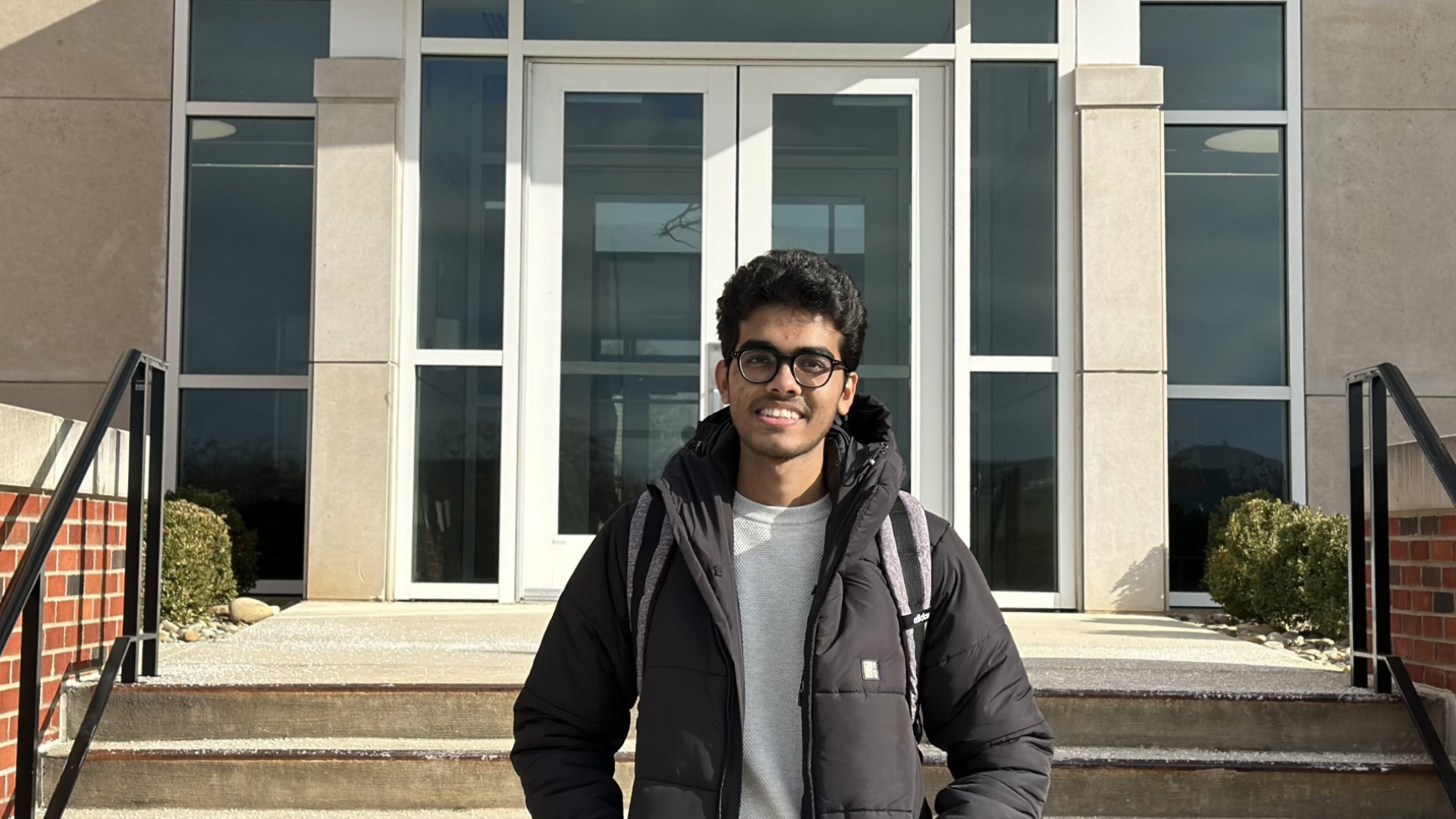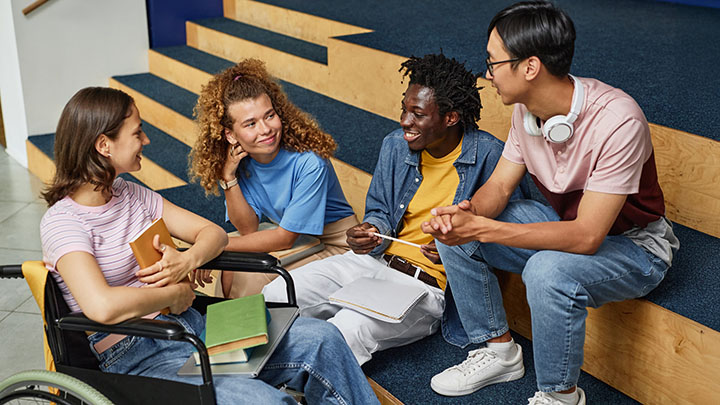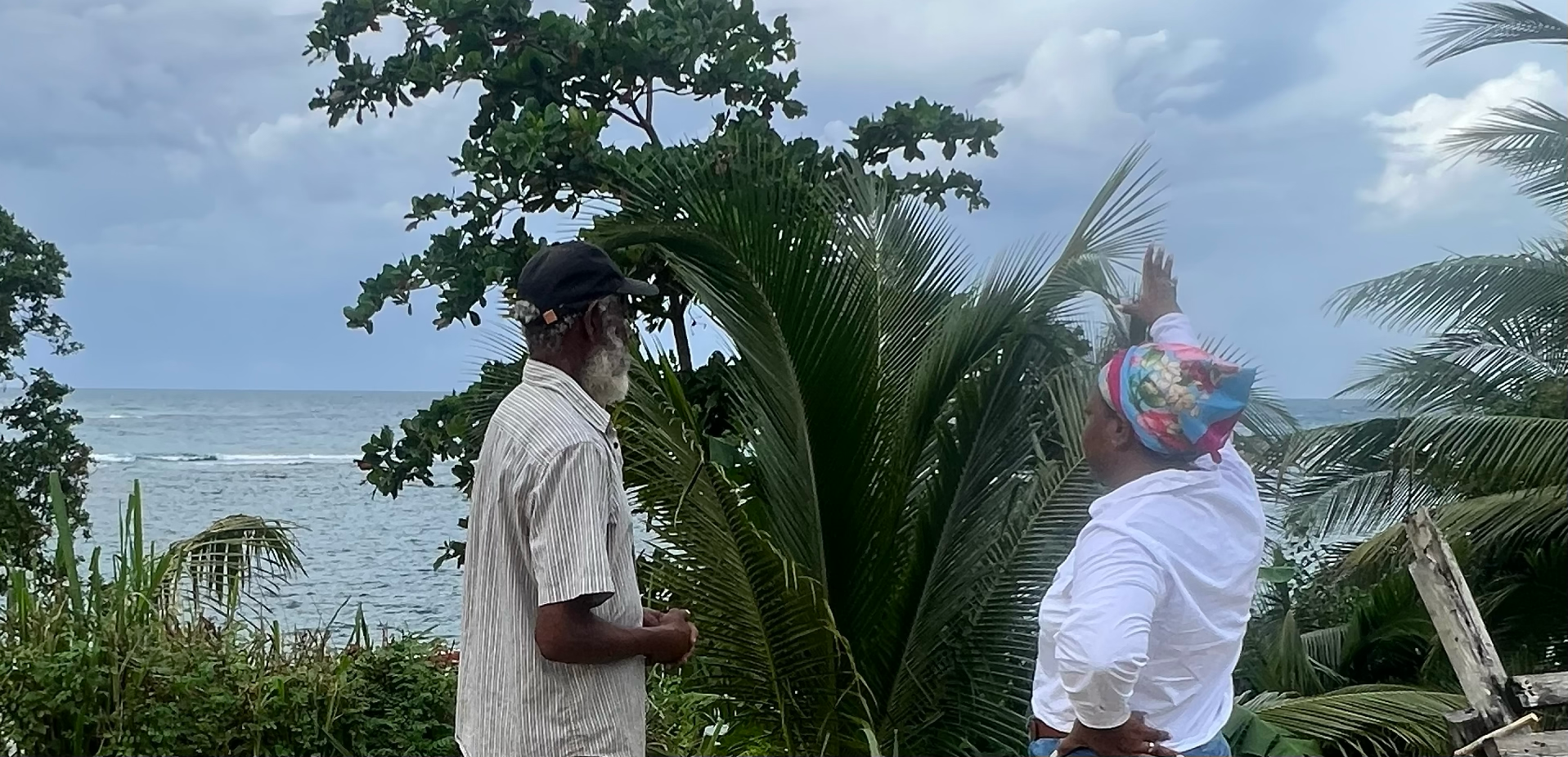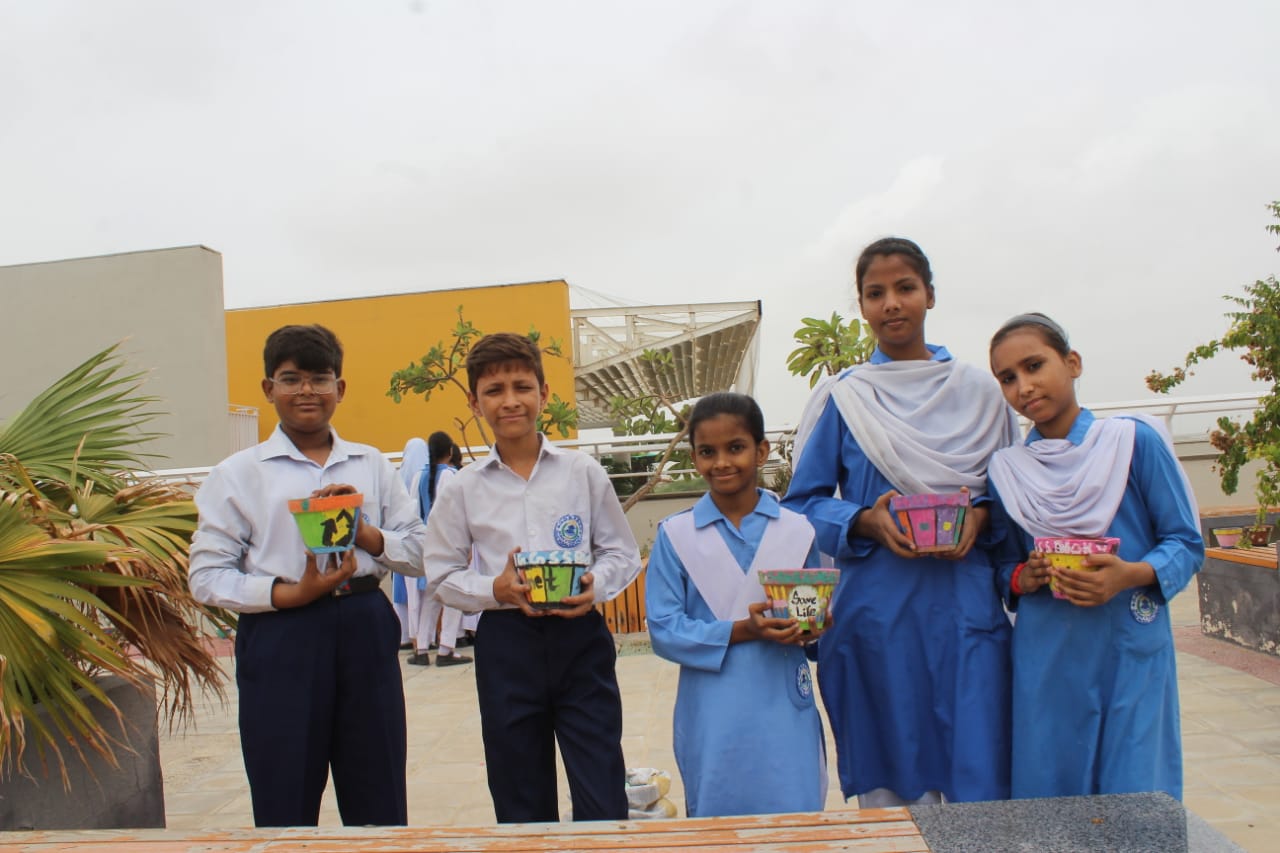
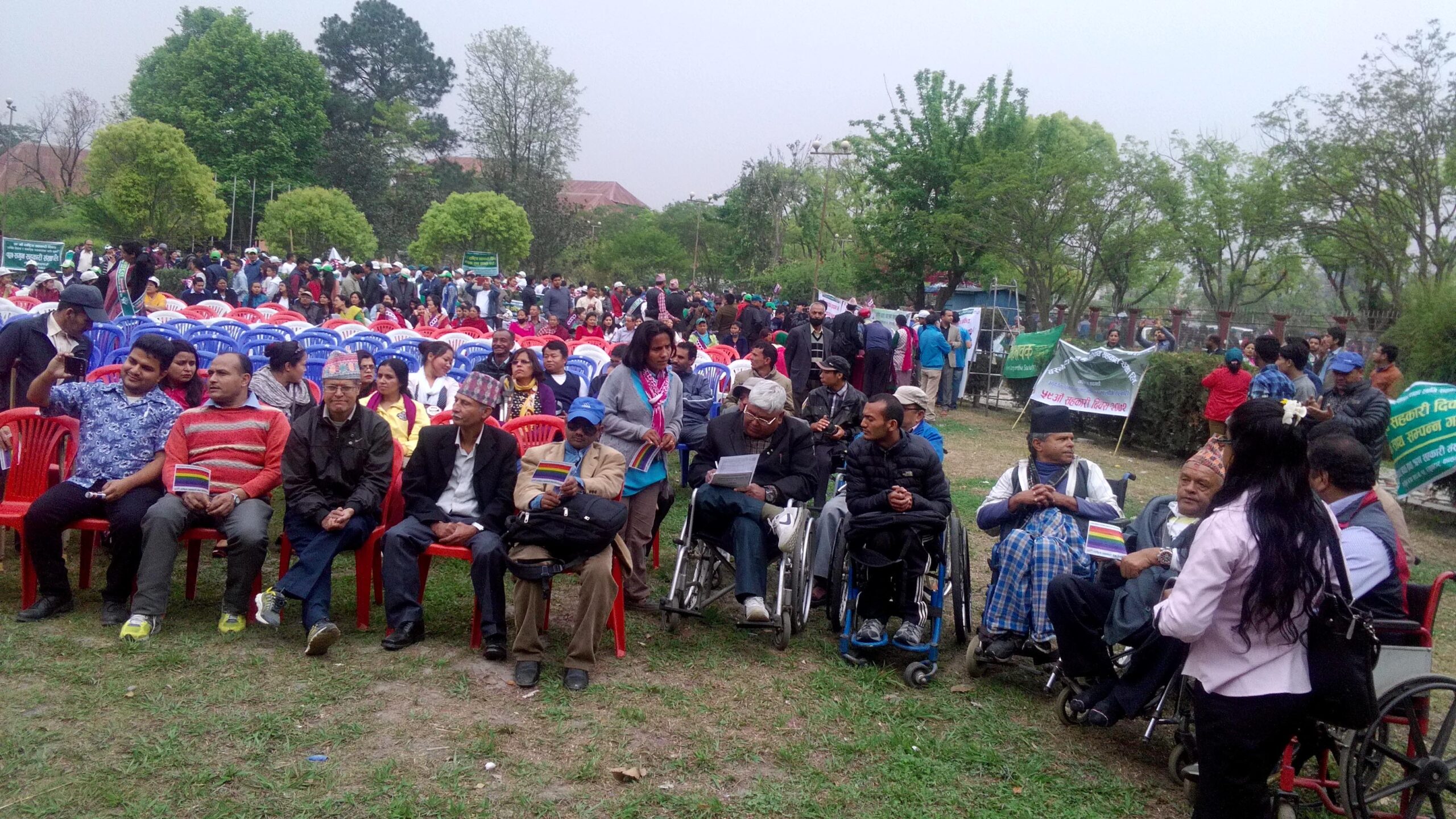
Refugee and Disability Stereotyping
SEPTEMBER 13, 2023
DEV DATTA JOSHI, IIE CENTENNIAL FELLOW 2022–2023
IIE selected Dev Datta Joshi as a 2022-2023 IIE Centennial Fellow to continue his work advocating for persons with disabilities and particularly the challenges faced by refugees with disabilities. Through educating those with disabilities, policymakers, and university deans, he hopes to increase education opportunities for refugees with disabilities.
I have been advancing disability rights nationally in Nepal and internationally for over 20 years. Today, my work has impacted more than two million persons with disabilities worldwide, especially South Asia, to dismantle barriers to persons with disabilities’ social, economic, and political participation.
As the Founder, Executive Director, and Senior Disability Rights Lawyer with Equip for Equality Nepal (EEN), I lead a dynamic team responsible for the development, implementation, and replication of innovative projects such as “Overcoming the Barriers That Refugees with Disabilities Face in Accessing Higher Education in Nepal.”
I work to advance human rights and social justice, particularly focusing on the rights of persons with disabilities. My legal training has prepared me to work toward implementation of the UN Convention on the Rights of Persons with Disabilities on all fronts: as an advocate, litigator, activist, and trainer. I effectively advocate against involuntary sterilization of women with disabilities through litigation. Likewise, I advocate for the removal of discriminatory language from Nepalese legislation, especially terms relating to those with intellectual disabilities.
Most importantly, to help alleviate injustice and inequity, through blogs, academic, and newspaper articles, nationally and internationally, I write about disability rights, women’s empowerment, labor rights, climate change, empowering refugees, transgender issues, trafficking, education, culture, entertainment, and corruption. I believe effective writing plays a vital role in changing society. In a country like Nepal, where rule of law is weak, writing articles can help make Nepali citizens, government officials, and the international community safeguard the rights of Nepal’s most vulnerable groups: persons with disabilities.
Links between IIE Centennial Fellowship Project and my Fulbright Experience
To design my IIE Centennial fellowship project, the following components of Humphrey year in the United States were instrumental that acquitted me the knowledge and skills:
- I started preparing for this project in 2018, when I was attending the Washington Global Leadership Forum. I had an opportunity to meet with representatives of international organizations such as the Human Rights Watch. This meeting provided me with insights and skills on how a developed country like the United States is ensuring college admission of refugee persons with disabilities. I brought that knowledge back to my country and shared it with disability rights advocates, and university deans;
- While pursuing course work on Asylum and Refugee Law at American University’s Washington College of Law, I gained insights and skills on the history and development of the United Nations 1951 Refugee Convention, the 1967 Protocol, and the U.S. Refugee Act of 1980;
- While doing my professional affiliation with Disability Rights International (DRI) in Washington, DC, I had an opportunity to learn refugee and disability rights and how to write successful grant application;
- During my Community College Residency Program (CCRP) in Chicago, I had an opportunity to meet with experts and thought leaders in disability rights and organizations who helped me identify steps to advance my project and increased my effectiveness as leader in the medium and long term;
- Humphrey fellowship program served to polish my analytical skills and critical thinking. Beyond this, it tested and proved my resiliency and adaptability.
Double Bind, Double Discrimination
Refugee persons with disabilities, especially refugee women and girls with disabilities, experience many forms of violence. Violence against refugee women with disabilities has unique forms, unique causes and unique consequences. These negative impacts are felt all over the world and in every sphere of life. Refugees with disabilities, especially refugee women with disabilities are our forgotten people.
Refugees with disabilities, especially refugee women and girls with disabilities, face double discrimination based on both refugee and disability (as well as other identities such as race, sexuality, indigenous status, etc.). Stereotypical attitudes towards women in general and persons with disabilities contribute to misconceptions and derogations of the opportunities, abilities and potential of refugees with disabilities, re-enforcing patriarchal attitudes and assumptions and depriving them of even the most basic human rights.
The right of refugee and displaced persons with disabilities to be included in mainstream higher education institutions is clearly recognized by international conventions such as the 1951 Refugee Convention, which hold that refugees with disabilities should have equitable access to inclusive quality higher education. However, in Nepal, refugee and displaced people with disabilities continue to be excluded from higher education opportunities.
To challenge these discriminatory practices, I applied and won IIE Centennial Fellowship. My fellowship project has been impacting to:
- Involve education policy-makers and university deans in advocacy and policy dialogue on issues related to refugee equality and empowerment, especially disability-inclusive education to bring the initiative to the next level.
- Educate and convince representatives from Disabled Peoples’ Organizations, university staff, local governments, policy-makers, human rights defenders and police officers with insights and skills on how to increase access, ensure equity, provide pathways, and address needs related to higher education attainment for refugee and displaced populations.
- Enhance policy-makers’ knowledge of disabled refugee and displaced persons’ educational rights as enshrined in Nepal’s Constitution and international human rights instruments.
- Minimize stereotypes prevalent in Nepalese communities about disabled refugees’ capabilities that prevent them from exercising their right to higher education.
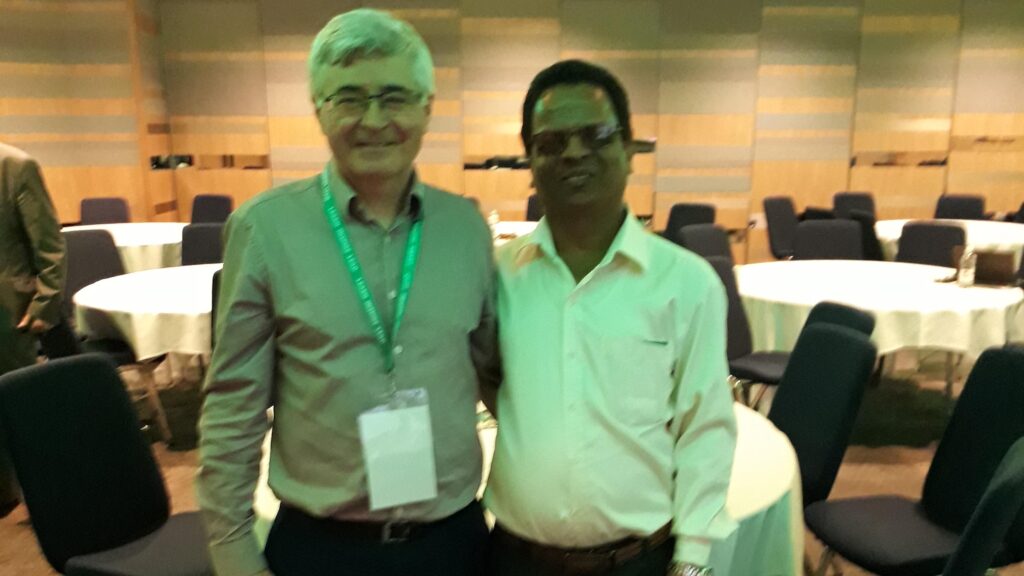
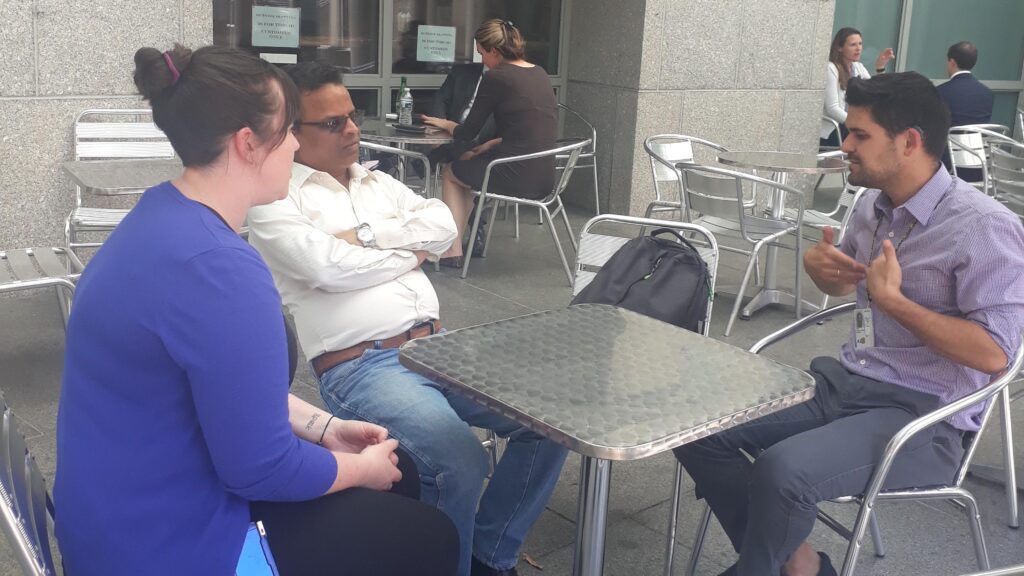
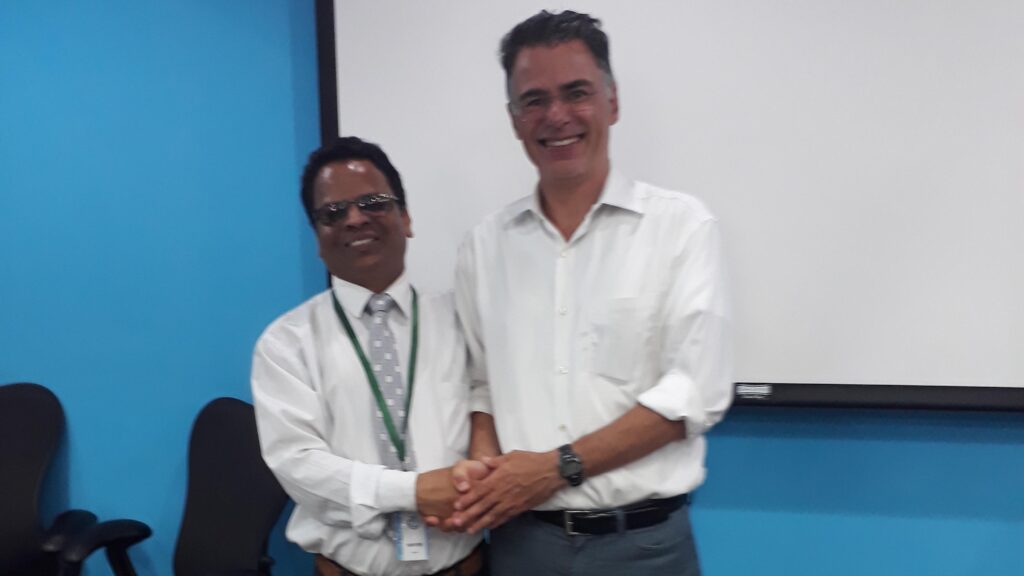
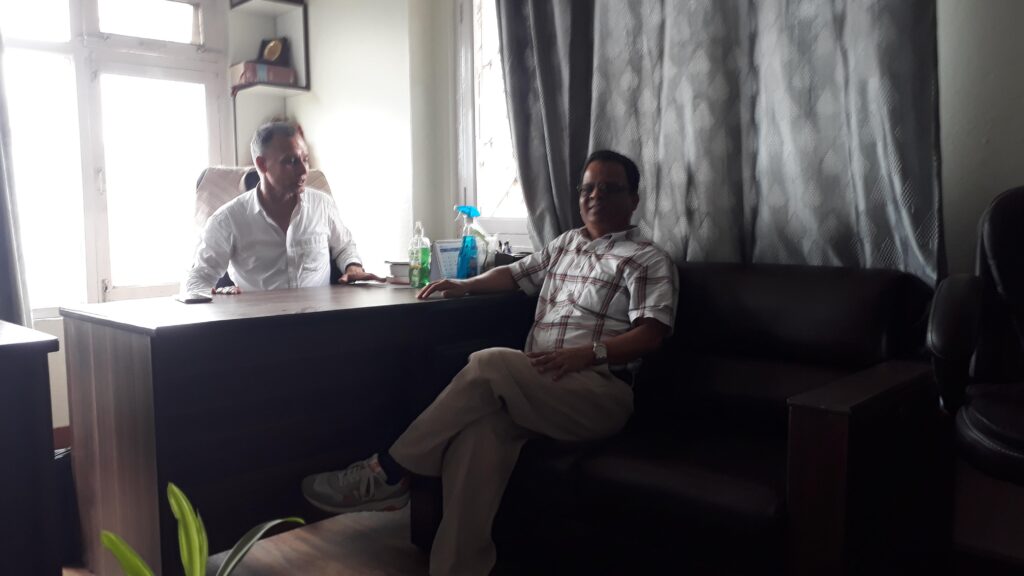
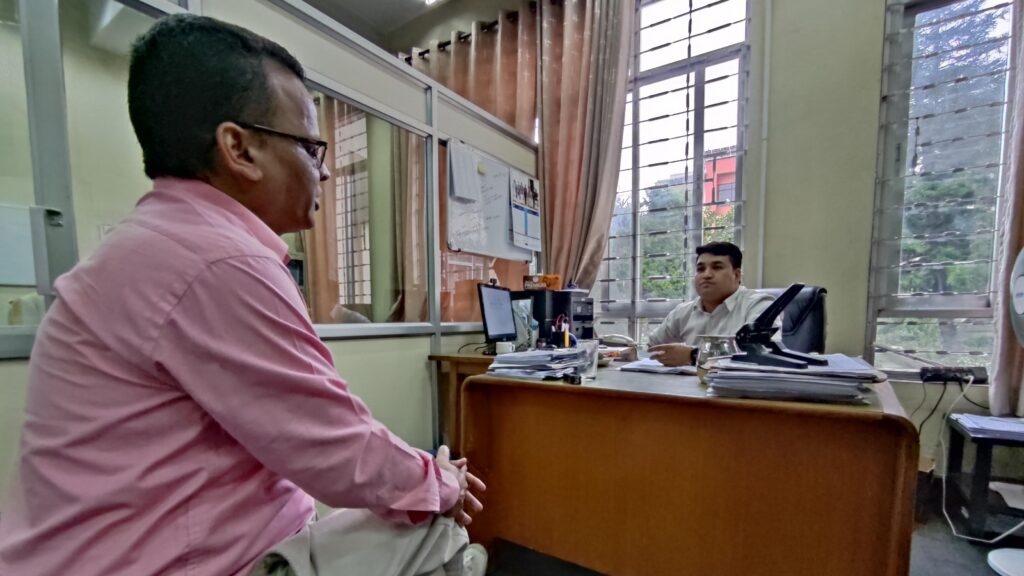
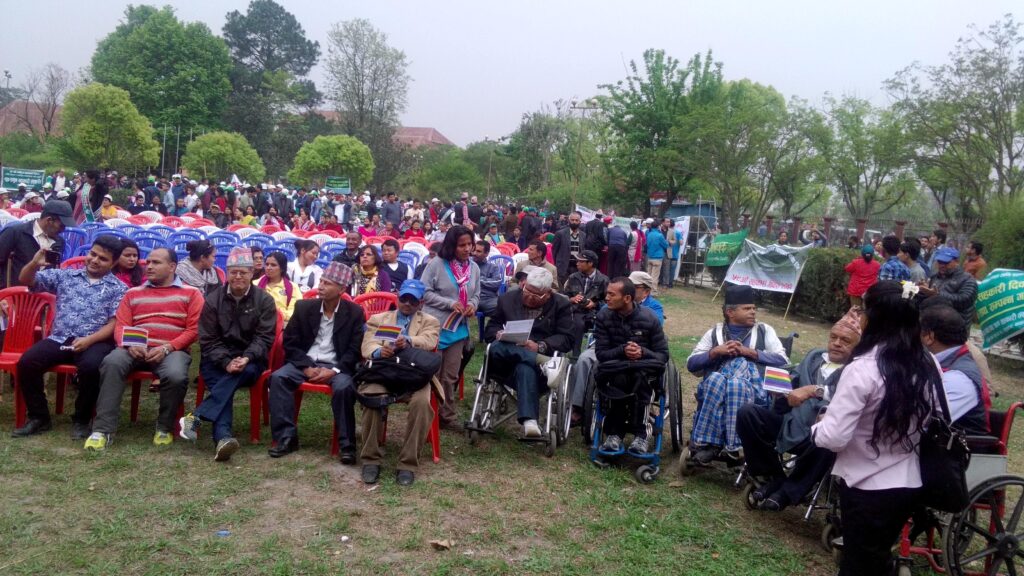
Dev Datta Joshi has been advancing disability rights nationally in Nepal and internationally for over 20 years. He is the Founder and Executive Director of Equip for Equality Nepal (EEN) which develops and implements, innovative projects such as “The Role of Civil Society Organizations and Movements in the Fight against Racism and Discrimination”. As a Hubert H. Humphrey Fellow, he pursued coursework on asylum and refugee law at American University’s Washington College of Law.
Named in honor of IIE’s Centennial and association with the Fulbright Program, the IIE Centennial Fellowship seeks to help enhance Fulbright as a life-long experience and recognize alumni whose work embodies the program’s underlining values of mutual understanding, leadership, global problem solving, and global impact.
